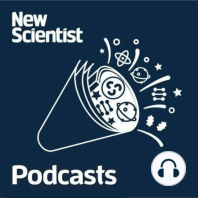28 min listen

Weekly: ADHD helps foraging?; the rise of AI “deepfakes”; ignored ovary appendage
Weekly: ADHD helps foraging?; the rise of AI “deepfakes”; ignored ovary appendage
ratings:
Length:
24 minutes
Released:
Feb 23, 2024
Format:
Podcast episode
Description
#238ADHD is a condition that affects millions of people and is marked by impulsivity, restlessness and attention difficulties. But how did ADHD evolve in humans and why did it stick around? Through the help of a video game, a study shows that these traits might be beneficial when foraging for food. In 2023, we hit record after record when it comes to high temperatures on Earth, including in the oceans and seas. From the surface to 2000 metres down, it was hard to find a part of the ocean not affected. This week, about 5000 scientists gathered in New Orleans for the American Geophysical Union’s biennial Ocean Sciences Meeting. Heat was the one thing on everyone’s mind, as researchers grapple to understand the drivers and consequences these new records have – but also look for promising solutions.The future of AI deepfake technology is not looking good. You might remember the infamous fake images of Taylor Swift that included non-consensual, intimate images of her on social media. Or the fake robotcall that mimicked President Joe Biden’s voice and discouraged voters from coming to the polls. As voice, picture and video generating technologies become cheaper and easier to use, can anything be done to prevent more harm?A “useless” structure on the ovary may in fact be key to fertility in mammals. The structure, a tiny series of tubes called the rete ovarii, was first discovered in 1870 and doesn’t even appear in modern textbooks. Now, researchers accidentally stumbled back onto it – and suggest that the rete ovarii may help control ovulation and the menopause. Plus: Humpback whales’ huge and specialised larynxes; physicists are excited about a new “unicorn” in the world of black holes; the “dogbot” that becomes three-legged to open doors.Hosts Christie Taylor and Timothy Revell discuss with guests Chen Ly, James Dinneen, Jeremy Hsu and Michael Le Page. To read more about these stories, visit newscientist.com. Hosted on Acast. See acast.com/privacy for more information.
Released:
Feb 23, 2024
Format:
Podcast episode
Titles in the series (100)
#21: How to prevent future pandemics, black lives matter and racism in science, suspended animation by New Scientist Podcasts